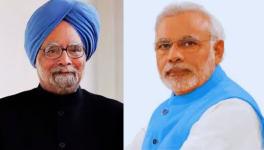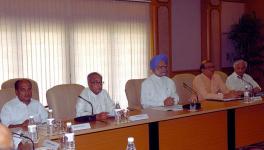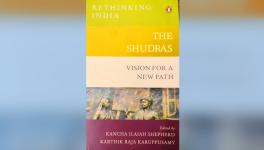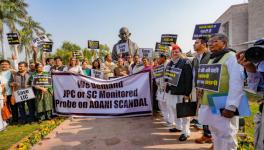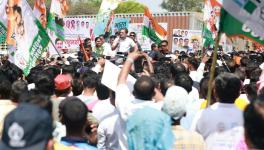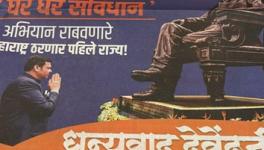Chintan Shivir Lesson for Congress: Course Correction Means Change
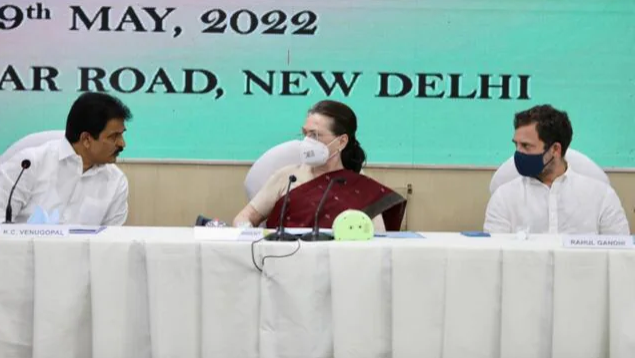
Image Courtesy: Twitter/ @INCIndia
Before the Udaipur Chintan Shivir, Congress president Sonia Gandhi formed several committees and requested their members to share their vision for the party. The Mallikarjun Kharge-led High Power Political Committee wrote in its paper, “The Congress has to create ground for itself everywhere based on the strength of its organisation, and, to protect the spirit of nationalism and democracy, it is determined to establish dialogue and contact with all like-minded parties, and will keep open avenues for alliances as per the political circumstances.” But in his concluding speech at the event on 15 May, Rahul Gandhi said, “We have to tell the public that regional parties have no ideology, they only do caste politics. That is why they can never defeat the BJP. This can be done only by the Congress party.”
Consider the contrasting points raised by the two key party figures. One is the leader of the party in the Rajya Sabha, entrusted with the responsibility to prepare a document on the party’s future political direction. Earlier, from 2014 to 2019, he was the party’s leader in the Lok Sabha. Kharge is from a Dalit community, so he perhaps favours forging alliances with like-minded political parties. The other leader is the former and future president of the Congress, who believes all regional parties do nothing except ‘caste politics’ and cannot defeat the BJP, which only his party can do.
Looking back at thirty years of Mandal politics, we find Rahul Gandhi’s claim that Congress can defeat the Bharatiya Janata Party (BJP) far from the truth and a little bizarre. The BJP is the most powerful political outfit in the cow belt, which has, more or less, 230 Lok Sabha seats. Yet in three electorally crucial states, Bihar, Uttar Pradesh and Jharkhand, the regional parties have given the BJP a tough challenge. Due to these parties, the BJP has never been able to come to power independently in these regions. It is also a fact that the Congress party was the first to disappear from those regions! In the Hindi-speaking belt—Madhya Pradesh, Rajasthan, Chhattisgarh, Himachal Pradesh, Haryana and Delhi—the Congress Party is still the BJP’s main rival. It has won elections now and then in these states, but the party organisations are not in good shape in them.
The Congress party will first have to address casteism and communalism in the style of ‘Beeti tahi bisar de aage ki sudh lei—forget the past and focus on the future’, as, on these two issues, it has not taken a clear position even 75 years after independence. Congress and Rahul Gandhi must realise that just calling someone casteist will not help solve its problems. Even if his statement is accepted at face value, a follow-up question arises immediately: does his party have the power to challenge the BJP? Over the last eight years, ever since Narendra Modi became the Prime Minister, the Congress has consistently lost its support base—but this is not true for all non-BJP parties! Many regional parties have contested the BJP by making caste a political issue, especially those whose politics revolves around social justice.
The BJP challenged the Congress party on something that it was the sole champion of—nationalism. Under the burden of Hindutva’s cultural nationalism, the Congress party disintegrated. Today, it shows no trace of so-called nationalism whereas, despite everything in the last decade, the BJP is unable to reject social justice—yet Rahul calls it casteism! His dismissal of regional parties shows he has neither learned from the past nor has a vision for tomorrow. Saying regional parties are casteist implies his party will not take up caste concerns or the Dalit question seriously. The fight for social justice remains a battle for social prestige in the cow belt, but the Congress party is unwilling to accept this.
That is why, Kharge may say in his political report that the “first blow of the attack on constitutional rights has reached the Dalits, Adivasis, Backwards, minorities, women and the poor of the country”, but in practice, Rahul Gandhi easily dismissed his statement. Gandhi and his advisors may not know their history well or they deliberately refuse to accept that the Congress party’s weakest stances since independence have been on caste and communalism.
The caste question was never taken seriously by the Congress party. Therefore, Jawaharlal Nehru himself stood against the Kaka Kalelkar Commission report (1955) that he had constituted. Similarly, the Mandal Commission formed during the Janata Party rule was submitted to former prime minister Indira Gandhi (1980), but though the Congress was in power for ten years, it gathered dust until the Janata Dal government led by VP Singh implemented its recommendations. Rajiv Gandhi’s one-and-a-half-hour long speech in Parliament against the implementation of the Mandal Commission’s recommendation documents why the backward classes refuse to come closer to the Congress party. Should not Rahul Gandhi have kept in mind that regional parties were formed all over the country because of the Congress’s elite caste leadership and upper-caste thinking, in which Dalit and backward sections got negligible representation? Out of 22 states at the time, at least thirteen had chief ministers from an elite caste, and eleven were Brahmin, excluding the seven states of the Northeast.
Rahul Gandhi dismissing regional parties as casteist undermines the struggle of social justice parties and rejects social justice itself. It undermines the efforts and legacy of Periyar, Karpoori Thakur, Ramswaroop Verma, Kanshi Ram, Jagdev Prasad, Lalu Prasad Yadav and Shibu Soren.
Secondly, the role of the Congress party in contesting communalism is also largely questionable. Yes, the Congress party has not been communal in principle, but after the BJP, it has used the communal card the most. Immediately after independence, during Congress rule, when Govind Ballabh Pant was chief minister of Uttar Pradesh, the idol of Lord Rama was placed in the Babri Masjid. There were continuous riots in North India during Congress rule, especially Bihar and Uttar Pradesh, and the State took no significant action against the rioters. The State did not take requisite action in cases related to the 1984 massacre of Sikhs carried out in Delhi, and instead reversed the Supreme Court’s decision in Shah Bano, and then the locks of the Babri Masjid were opened. What is more, in 1989, Rajiv Gandhi started his election campaign with the promise of bringing “Ram Rajya” in Ayodhya!
The story of discrimination against minorities, especially Muslims, is also very old and started once India became independent. Famous political scientist Paul R. Brass details this in the first part of his two-volume biography of Charan Singh, “An Indian Political Life”. Brass explains that during independence, Muslim participation in the police and administration of Uttar Pradesh was higher than its proportion of the population, but Pant framed policies that reduced their participation. Home Minister Rafi Ahmed Kidwai also played a role in this process. According to Brass, Pant’s policy reduced Muslim role in government services, including police, for the next half-century. Their presence in these roles declined from 28 to 8% in Uttar Pradesh.
Former journalist Akshaya Mukul records in his well-known book, “Gita Press and the Making of Hindu India”, that Pant, during his tenure as Home Minister, recommended the Bharat Ratna for Hanuman Prasad Poddar, the fundamentalist Hindutvadi founder of the Gita Press. However, Poddar, a big fan of Hindu Rashtra, rejected the award. Thereafter, Pant said of Poddar in a letter, “You are so great, such a great human being that Bharatvarsha, the whole human world, should be proud of you... I wanted to honour you with the title of Bharat Ratna. You are at a much higher level than this title.” One can gauge how much hatred he must have nurtured towards the Muslims from the tone of the letter to someone who was not only preventing Muslims from entering government services but throwing them out of their jobs.
True, the top leadership of the Congress party was not like Pant, but the politics of five or six of its ten prominent leaders indeed revolved around Hindutva. Unfortunately, Pant was among those few prominent leaders.
In Udaipur, the Congress party said something important about its economic vision. “After 30 years of liberalisation and taking cognisance of domestic and global conditions, naturally, there is a need to change the economic policy. Employment-generation should be the focus of this ‘New Resolution Economic Policy’. There can be no place for jobless growth in today’s India. It is necessary for [our] new economic policy to be able to solve extreme poverty, hunger, and malnutrition (especially among women and children) and the worst economic inequality that has spread in the country.”
But even here, the most striking thing is that the Congress got P Chidambaram, a member of the earlier new economic policy trio consisting of Manmohan Singh and Montek Singh Ahluwalia, to announce this new vision. If Chidambaram really feels there is a need to change the policies implemented under his watch, it is welcome. But the Congress leadership, especially Rahul Gandhi and his foot-soldiers, should not forget that after the Left parties, the fight for social justice and secularism has been fought the most strongly, despite multiple compulsions, by regional parties. Denying this will not help it win any battle today.
The author is an independent writer. The views expressed are personal.
Get the latest reports & analysis with people's perspective on Protests, movements & deep analytical videos, discussions of the current affairs in your Telegram app. Subscribe to NewsClick's Telegram channel & get Real-Time updates on stories, as they get published on our website.










